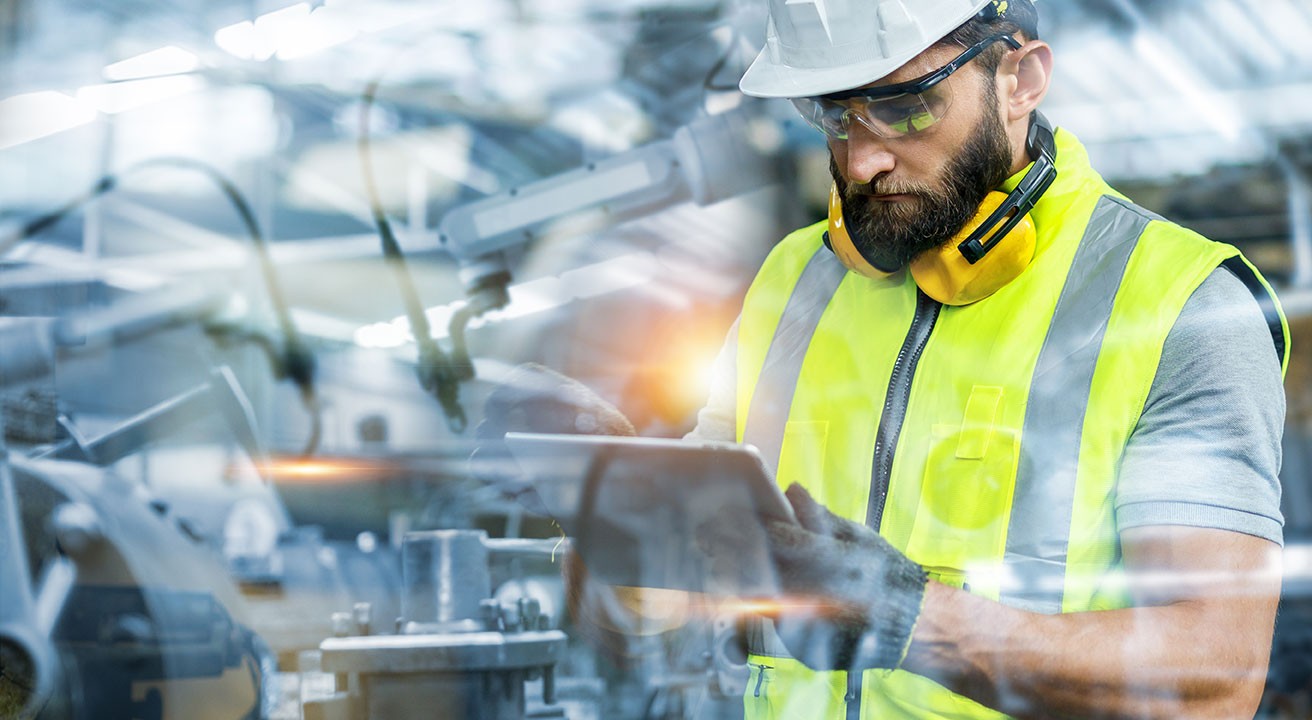Automation has proven to be an ideal solution among manufacturers of every size. Advances in modern technology have made it possible for manufacturers to use automation on their production floor. Automation in the manufacturing industry averaged $126 billion per year in 2018. You can expect to see a forecasted growth of 8.6% by 2025.
If you are in the industry, you already know how important it is to stay on top of these changes. Successful businesses are constantly evolving.
Continue reading to learn everything you need to know about Artificial Intelligence. You will also see how implementing it with ERP software is inevitable for the future of the manufacturing industry.
What Is Smart Manufacturing?
Smart manufacturing involves automation and the Internet of Things (IoT) to increase productivity and decrease human error. Automating the processes gives the machines the ability to connect with the manufacturer. These machines can share information with the manufacturer. It helps to ensure worker safety in a field that can sometimes be dangerous.
Manufacturers are then able to identify problem areas. It allows them to fix any issues without losing profits or having a lot of machinery downtime. It will enable manufacturers to be proactive with maintenance and make the processes more efficient.
A smart factory refers to the digitized production floor that can continuously collect data and share it with other machines and devices that are connected to it. The production process implements technology, computation, and data into the most recent Industrial Revolution.
Automation in the factory setting doesn’t necessarily mean that machines are taking over. For smaller businesses, you may find that they already use automated processes for menial tasks, including:
- Automating email marketing
- Recruiting prospective candidates for employment
- Handling financial accounts and payroll
More prominent manufacturers might include running machines on the production floor and taking over dangerous or messy tasks. It helps to incorporate safer work practices for employees.
Components of Smart Manufacturing
While steam-powered previous Industrial Revolutions, data is the driving force behind Industry 4.0.
There are so many components that make up a smart factory. A cyber-physical system refers to the “cyber” or computer program that can control “physical” items or machines. It incorporates the IIoT, Industrial Internet of Things, into the manufacturing industry. The IIoT connects machines on a single network to communicate with and be communicated with.
Artificial intelligence refers to the computer’s ability to perform tasks or decisions without human intervention. Machine learning refers to AI’s ability to improve or adapt over time to gather more data.
Augmented reality is when technology adds knowledge to the machines’ processes. It can guide workers in self-guided tutorials on unfamiliar machines or procedures. A digital twin is similar to augmented reality because it allows a virtual copy to remotely monitor the machines via mobile devices.
Cobots, or collaborative robots, quickly learn new tasks. They can then take over tasks deemed dangerous, messy, or menial to the humans within the factory.
While blockchain started as a bookkeeping method for Bitcoin, it quickly became a peer-reviewed ledger that facilitates recordkeeping for businesses in the manufacturing industry. It’s used to improve asset tracking, transaction settlements, and trade finance.
Additive manufacturing, or 3D printing, builds parts from the digital files by adding materials. Something that was once primarily used for prototyping is now getting some traction for customization within manufacturing.
Your Epicor® ERP software is the system that acts as a centralized location for data. With this system in place, data can be collected, accessed, maintained, and even shared among other areas within the production floor.
Benefits of Smart Manufacturing
The number one benefit of smart manufacturing is automation. Automation removes human input and error while improving production, quality, and safety. With fewer production errors, scrap and rework can be prevented. Data helps manufacturers to learn the proper servicing intervals while planning proactive maintenance. Machines will not go down as often.
Artificial Intelligence allows for faster decision-making because the machines can see the entire business, including the business floor and its supply chain, through a clear lens simultaneously. This means that decisions are made quicker without this human input.
Data allows a forecast of demand and customer terms through which manufacturers can reduce risk and costs. It helps the supply chain to become more efficient.
The automation factor of smart manufacturing allows workers to run the machines remotely. This will enable manufacturers to get work done off-site via mobile devices. It also makes it easier for manufacturers to take custom orders. This make-to-order (MTO) function is only possible because of automation. Parts no longer have to wait around to be manufactured.
Is Artificial Intelligence Going to Impact the Future of Manufacturing?
Advancements in technology have allowed these systems to self-diagnose, self-correct, and self-improve over time. AI is going to become essential in the manufacturing industry. Smart manufacturing will become more predictive and sustainable. It will be fast-paced and customer-focused.
Artificial intelligence will make factory jobs safer and more flexible for the workers. With ERP as a foundation in the manufacturing industry and the right technology in place, your business will be able to make the necessary changes needed to succeed.
Prepare for the future with Tomerlin-ERP by your side. Because we work exclusively with Epicor® ERP software, you can rest assured knowing that your company is in good hands. We can implement your ERP software or train your entire staff on the more complex procedures. Contact us today for more information.

